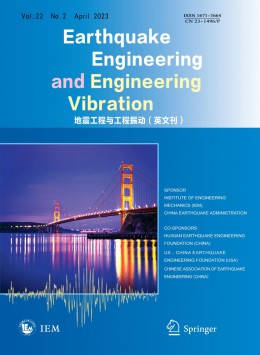《Earthquake Engineering and Engineering Vibration》杂志是什么级别?杂志刊期是多久?
来源:优发表网整理 2025-05-20 11:53:44 1475人看过
《Earthquake Engineering and Engineering Vibration》杂志级别为CSCD期刊、SCI期刊。目前刊期为季刊。
《Earthquake Engineering and Engineering Vibration》杂志简介信息
《Earthquake Engineering and Engineering Vibration》由中国地震局工程力学研究所主办、美国多学科地震工程研究所中心(MCEER)协办。
《Earthquake Engineering and Engineering Vibration》是反映我国地震工程与工程振动领域最新成果和国外该领域最新进展的学术性期刊,旨在促进国际学术交流,推动地震工程与工程振动学科的发展,减轻地震灾害。
《Earthquake Engineering and Engineering Vibration》主要刊登以下内容的综合评述、专题研究论文和科研简报:结构和工程体系震害评定,强震观测与分析,土木基础设施的地震危害性与危险性分析,场地对结构的影响和岩土工程,建筑物与生命线系统的抗震性能和设计原理,结构控制,现有基础设施系统的修复策略,结构动力学以及和地震工程相关的阻尼理论的进展,应急传感与监测系统和高性能材料在地震工程中的应用,以及风、波良和其它动荷载下土木工程结构振动问题。
《Earthquake Engineering and Engineering Vibration》杂志特色:
Title Page:
The title page should contain: Title, Authors, Affiliations,
Acknowledgement, and Footnotes supplying: Correspondent
author‘s information including: the full name, complete mailing address, telephone and fax number, and, if available, e-mail address; Job titles of all authors; and The name(s) of sponsor(s) of the research contained in the paper, along with grant number(s), if any.
General: The manuscript should be provided in single-spaced typing Time New Roman, 10.5 pt., on A4 size pages in electronic format using Microsoft Word. It must be written in English and should not exceed 13,000 word-equivalents. (A journal page contains approximately 1,300 words.) Technical notes should not exceed 4,000 word-equivalents. If it is necessary to include additional information, such as appendices, these should be submitted electronically for inclusion on a web site for the journal.
Abstracts: Each paper should include an Abstract of 150-200 words, reporting concisely on the purpose of the work, the scope of the effort, the procedures used to execute the work (if of special interest), the major findings, and a list of three to eight keywords. The abstract must be self-contained, and it must not require reference to the paper to be understood.
Text: Follow this order when typing manuscripts: Title, Abstract, Keywords, Main text, Appendix, References, Vitage, Figures (including captions) and then Tables. Footnotes are to be avoided (except for table footnotes). Please complete text minus the title page, acknowledgment, and any running headers with author names, to allow blinded review.
Units: The SI system is to be used throughout; if it is necessary to use other units, these should be added in parentheses.
References
References should appear within the text as the author name(s) followed by the year of publication in parentheses. A list of all references must be given at the end of the text in alphabetical order by last name of first author. Make sure the reference information is complete and accurate, including as necessary and in the following order: last names and initials of all authors; year of publication; title of paper, report or book chapter (in quotes); title of book or periodical (in italic); volume and issue numbers; name and location of publisher (for books), name and location of publisher or sponsor for proceedings), or city of publication (for non-U.S. journals); and inclusive page numbers. The references should be listed in the following style:
Liu Huixian and Zhang Zaiyong (1980), “Lessons Learned from the 1976 Tangshan Earthquake,” Proceedings of the 7th World Conference on Earthquake Engineering, Vol. IX, Istanbul, Turkey, pp.453– 460.
Huo Linsheng and Li Hongnan (2004), “Torsionally Coupled Response Control of Offshore Platform Structures Using Circular Tuned Liquid Column Dampers,” China Ocean Engineering, 18(2):173–183. (in Chinese)
Newmark NM and Rosenblueth E (1971), Fundamentals of Earthquake Engineering, Prentice-Hall, Inc., Englewood Cliffs, N.J.
声明:以上内容来源于互联网公开资料,如有不准确之处,请联系我们进行修改。
